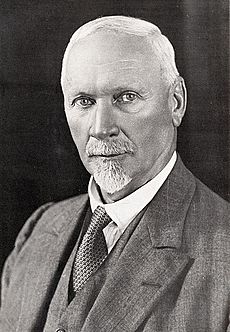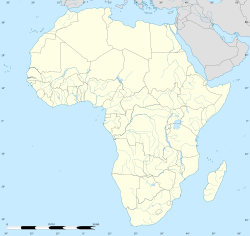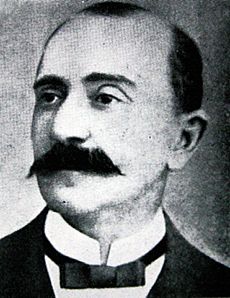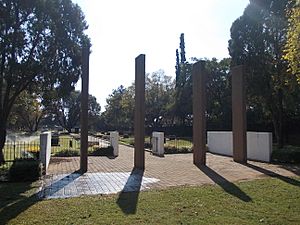Irene, Gauteng facts for kids
Quick facts for kids
Irene
|
|
|---|---|
| Country | South Africa |
| Province | Gauteng |
| Municipality | City of Tshwane |
| Main Place | Centurion |
| Area | |
| • Total | 1.74 km2 (0.67 sq mi) |
| Population
(2011)
|
|
| • Total | 2,684 |
| • Density | 1,543/km2 (3,995/sq mi) |
| Racial makeup (2011) | |
| • Black African | 19.8% |
| • Coloured | 1.5% |
| • Indian/Asian | 0.9% |
| • White | 76.8% |
| • Other | 1.0% |
| First languages (2011) | |
| • English | 55.4% |
| • Afrikaans | 32.5% |
| • Northern Sotho | 2.9% |
| • Zulu | 1.8% |
| • Other | 7.4% |
| Time zone | UTC+2 (SAST) |
| Postal code (street) |
0157
|
| PO box |
0062
|
Irene (pronounced eye-ree-nee) is a small, peaceful village. It is located on the eastern edge of Centurion in Gauteng, South Africa.
Contents
Who Lived in Irene First?
Long ago, in the early 1800s, a tribe called the Bakwena lived in the Irene area. They were also known as the Crocodile people. They didn't write down their own history, but other records mention them. Around 1825, a leader named Mzilikazi and his people, who later became known as the Matabele, arrived. They fought the Crocodile people, causing many to die and forcing the rest to leave.
Early European Settlers
In the 1830s, a Boer Voortrekker named Daniel Elardus Erasmus moved from the Cape Colony. He settled near where Irene is today. He wanted to live freely and farm his own land. Erasmus built a farm called Doornkloof. This farm became an important meeting place for the community. When Daniel Erasmus passed away in 1875, he left the farm to his three sons.
How Irene Got Its Name
In 1889, a businessman named Alois Hugo Nellmapius bought most of the Doornkloof farm. Nellmapius was a very busy person. He had a transport business and also started factories. These included South Africa's first gunpowder factory and a lime factory in Irene.
Nellmapius decided to rename the farm Irene Estate. He named it after his daughter, Irene Violet Nellmapius. The name Irene comes from a Greek word meaning "peace." His daughter used to say her name with three syllables: Ireenee. People still say it that way today. Nellmapius loved to entertain guests at Irene Estate. A frequent visitor was Transvaal president, Paul Kruger.
Nellmapius hired experts to help him on his farm. One expert, Mr. Fuchs, designed the beautiful gardens around the farmhouse. Another important person he consulted was Sir Arnold Theiler. Sir Theiler was famous for starting a research college for animal health.
Irene Becomes a Township

In 1902, Johannes Albertus van der Byl, known as Bertie, officially declared Irene a township. He had bought the Irene Estate in 1895. Bertie was the first of many van der Byl family members born in Irene. His family still lives there today, now in their fifth generation! The van der Byl family helped build up the farm's herd of dairy cows. They also planted hundreds of trees, long before caring for the environment became popular.
General Jan Smuts' Home
In 1908, General Jan Christiaan Smuts needed a home for his growing family. He bought a part of the original Doornkloof farm. He paid £300 for a wooden and iron building. This building had been used by British soldiers during the Anglo-Boer War. Smuts moved it to his new home at Doornkloof. After he passed away in 1950, his ashes were scattered on Smuts Koppie. This hill was near his family home for a long time. Today, the Smuts House Museum shows how one of South Africa's most important historical figures lived.
Irene Concentration Camp
Irene was also the site of one of the many concentration camps during the Second Anglo-Boer War (1899-1902). The British Army created these camps for Boer (Afrikaner) women and children. Their homes had been destroyed as part of the British Army's war strategy. More than 1,200 people, mostly children, sadly died at the Irene Camp. Today, a cemetery and memorial in Irene remember the names of those who died there.
Scouting in Irene
In 1921, the 9th Irene Scout troop was started. It was the ninth Scout troop to open in Pretoria. The van der Byl family, who owned most of the land in Irene at the time, donated the current Scout grounds in 1958.
Irene Today
Irene is now part of the larger town of Centurion. In 2000, Irene and the rest of Centurion became part of the City of Tshwane Metropolitan Municipality. Irene is located near the R21 and N1 highways. Because of this, it has seen more building and development recently. During the 2010 FIFA World Cup, the United States men's national soccer team stayed and trained at the Irene Country Lodge.
 | May Edward Chinn |
 | Rebecca Cole |
 | Alexa Canady |
 | Dorothy Lavinia Brown |






